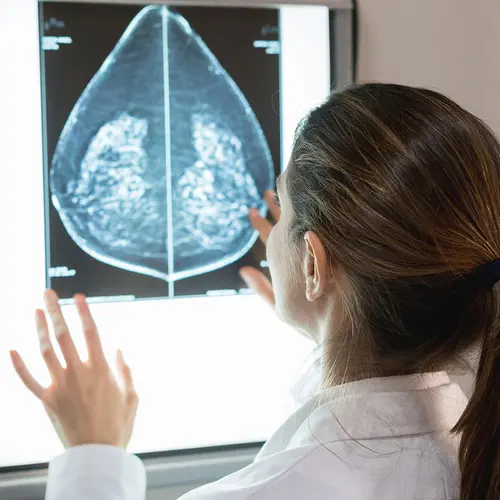Gluten free has been a huge food trend in recent years. But is it a smart strategy if you have breast cancer?
Specifically, are there benefits to avoiding gluten if you have breast cancer? And could foods with gluten actually lower your risk for cancers?
What's Gluten Again?
It's a protein in many grains, like wheat, barley, and rye. Pastas and bread
have lots of gluten. Other foods, like dressings, gravies, and cereals, can have it, too.
Gluten can trigger inflammation if you have certain health issues, though. The inflammation is your body's way of fighting off things like infections, injury, and poisons, says Wade Smith, MD. He's a medical oncologist who specializes in breast cancer at City of Hope Newport Beach Fashion Island in Orange County, CA.
It's OK unless it goes on for too long. Long-lasting inflammation can leave your body stuck on high alert.
Chronic Inflammation and Cancer
Long-term (chronic) inflammation can harm your body's tissues and organs, Smith says. This is linked to medical problems, including cancer risk. How so? Two ways:
- It damages DNA, which can cause cancer.
- It makes substances that rev up blood vessels that feed tumors. This allows cancer to grow.
The exact role chronic inflammation has in breast cancer isn't clear. The strongest link between breast cancer and inflammation has to do with weight, says Raymond Palko, a registered dietitian and specialist in oncology nutrition at the Seattle Cancer Care Alliance in Washington. “There is convincing evidence that overweight, obesity, and adult weight gain are risk factors for breast cancer. Excess body weight is a cause of chronic inflammation.”
Should People With Breast Cancer Avoid Gluten?
If you have celiac disease, your immune system wrongly thinks gluten is an invader. So it mounts an attack in your small intestine. This stirs up inflammation and damage that may raise the risk of some kinds of intestinal cancer.
But there's no reason for people with breast cancer to cut gluten if they don't have gluten intolerance, says Brandy Gerling, a registered dietitian and specialist in clinical oncology at Lenox Hill Hospital in New York.
Some foods with gluten can actually cut your cancer risk. Whole-grain bulgur, wheat, and barley, sprouted or fermented breads, and pasta made with whole grains may help fight inflammation, Palko says.
Naturally gluten-free foods like oranges, avocados, and olive oil are high in vitamins C and E can help keep cells healthy. Onions, garlic, and beans promote “good” bacteria and fight inflammation in your gastrointestinal tract. Proteins high in omega-3 fatty acids like salmon, tuna, and walnuts all fight inflammation, Gerling says.
Other Gluten Dos and Don'ts
- Say “No” to low-fiber, refined grains like white breads and sugary pastries. (They're also poor in nutrients.)
- Just because a product is labeled “gluten-free” doesn't make it a healthier choice than foods that have gluten, Palko says. Many gluten-free foods are made with low-fiber ingredients like white rice flour or cassava, he says.
- Processed foods, whether or not they have gluten, cause weight gain and lead to inflammation.
- If you decide to go gluten-free, read labels and choose whole-grain products. Look for ingredients like amaranth, quinoa, corn, brown rice, or wild rice, Palko says.
Lastly, Palko says: “Whether you're including gluten or going GF, a whole-grain pilaf with veggies and legumes (like beans) can be a bright and colorful side dish or an easy one-pot dinner on a busy night.”


